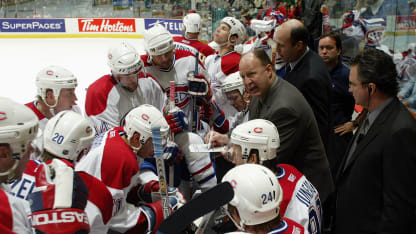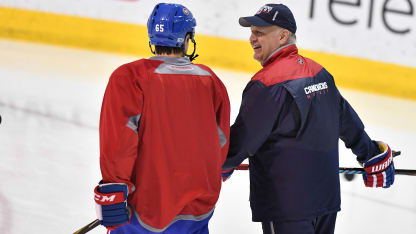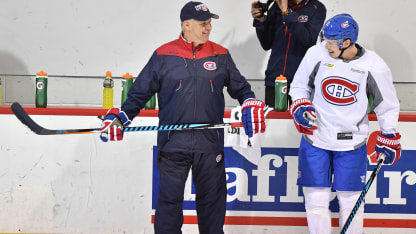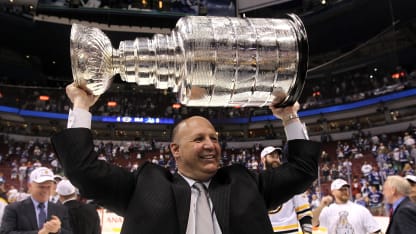MD: So you're saying that having the coaching staff intact with all the assistants helped your transition behind the bench?
CJ: Oh, absolutely. There are some good coaches here There are guys like Clement Jodoin, who was here the first time I came around. There were other coaches I knew already on a personal level, and so it was easy to adapt to this group of coaches. They've helped me a lot. All the questions, all the information I needed, they gave me the answers. When it was time to approach the team, I knew exactly where I wanted to go, because they were helpful. They'd been here, they knew exactly what was going on.
MD: In your only public statement after being fired by the Boston Bruins, you mentioned being ready to take a step back. Days - or even hours - later, you were hired by the Montreal Canadiens. What made you change your mind so quickly?
CJ:Well, I really did intend to take a step back. With 10 years in the same place, the Olympics, the Worlds and all that stuff I had done a lot of hockey. But I had said that the only way I would consider going somewhere else would be if it were the perfect situation. Montreal was that perfect situation. I mentioned it before, but this is a first-class organization. I worked with Marc Bergevin at the World Cup this year, and we seemed to have pretty good chemistry. At the same time, being from the Ottawa region, I was closer to home. There were a lot of things that fell into place. I felt comfortable here, I had been here before, I knew what to expect. This was the unique situation that I said I would accept, so I'm glad this came around, and I'm glad to be here.







